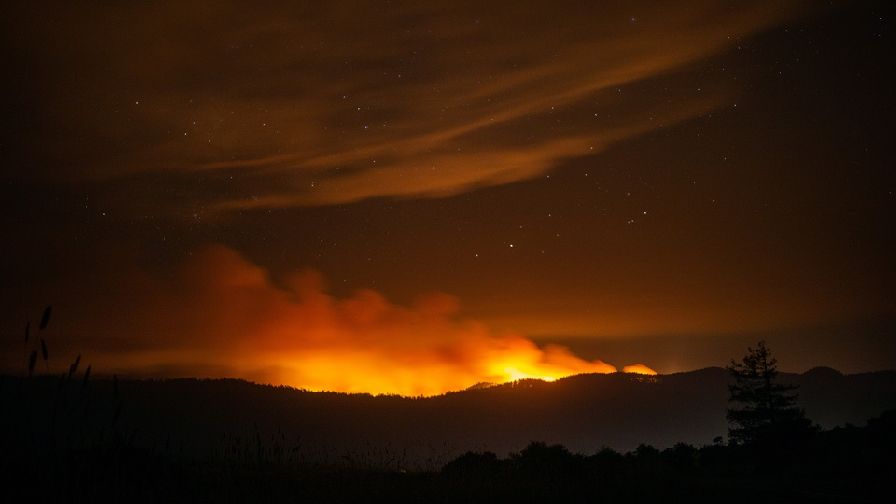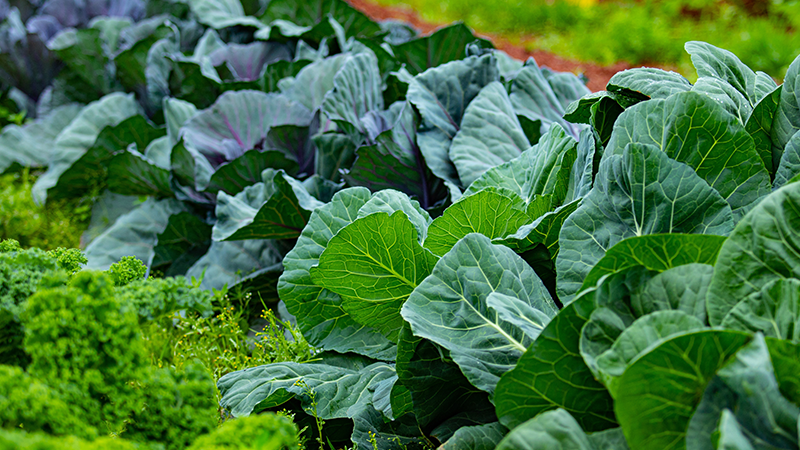Clear the Smoke: Groups Call for Wildfire Risk Sharing Between Grape Growers, Wineries

Wildfire smoke and grapes don’t go together. Industry groups are trying to clear the air on what is a growing problem. Photo courtesy of National Park Services
A report released by Allied Grape Growers (AGG) and the California Association of Winegrape Growers (CAWG) analyzes various grape transactions in 2020 that resulted in rejections or severe price discounts due to alleged quality problems associated with wildfire smoke. Prepared by Downey Brand, the report examines how these transactions comport with prevailing contract terms, reviews the applicable law and potential liability of wineries that rejected wine grapes, and provides guidance to growers on how they might protect themselves in the future.
Industry sources estimate 165,000-325,000 tons of California wine grapes, valued at $601 million, went unharvested in 2020 due to actual or perceived concerns of quality loss due to wildfire smoke events. As of April 4, 2021, the U.S. Dept. of Agriculture’s Risk Management Agency reported paying $187,920,862 in crop insurance claims to growers due to wildfire and smoke-related losses. The total amount of insurance payments confirms the likely accuracy of growers’ estimated losses.
Grower organizations AGG and CAWG commissioned Downey Brand to analyze the performance of grape contracts under the stress of wide-ranging smoke events during the 2020 harvest. The paper reveals smoke concerns generated serious, widespread breakdowns in contractual relationships between growers and wineries. Poor communication and a lack of transparency by grape buyers characterized the most serious disruptions to grape transactions.
Many wineries interpreted their grape contracts to include unwritten criteria for the presence of varying amounts of compounds associated with wildfire smoke, which often occur naturally in grapes. In most instances, a rejection letter was the first notice provided to a grower about these unwritten criteria. Growers often had minimal time to find replacement buyers. The paper found the decisions by numerous buyers to accept or reject grapes were based on discretionary determinations using “sensory analysis” or no identified criteria at all.
“Bottom line, the report makes clear that grape contracts cannot be reduced to an option to buy whenever a smoke event occurs,” AGG President Jeff Bitter said. “No party to a contract should be forced to bear a disproportionate share of the risks when wildfires occur. If we learned anything from 2020, we learned there must be better cooperation and risk sharing between grower and winery.”
Until scientific research provides the information and tools needed to predict the risk of smoke damage more accurately and to mitigate or prevent such damage, greater cooperation between growers and wineries is needed to minimize economic losses and avoid an inequitable reassignment of risks to one party or another.
The report suggests growers should address the uncertainty and risks of future smoke events through more clearly defined contract language. More effective contracts would address the following issues:
- Sampling of grapes: How will it be conducted? By whom? When? What are the chain of custody requirements for samples pulled from a vineyard or truck?
- Testing of samples: How will it be conducted? By a certified, third party lab? When? What methodology will be applied? How will results be shared?
- Smoke exposure standards or criteria: What thresholds for chemical compounds will be applied? What standards or criteria will apply if sensory analysis is part of the winery’s decision to accept or reject grapes, and will sensory analysis be coupled with lab results and not a standalone factor in the decision?
- Test results: How will the results of the tests affect the winery’s right to reject grapes or impose a price adjustment, if at all.
“The grower community can’t endure another year like 2020,” CAWG President John Aguirre said. “Winegrowing groups in California, Oregon, and Washington are working hard to fund research that will answer the many questions and needs growers and winemakers have regarding smoke damage, but until solutions are available, smoke risks need to be addressed through more effective communication and cooperation.”
AGG and CAWG will discuss the report’s findings and conclusions in a webinar on July 16 at 10 a.m. PDT.









